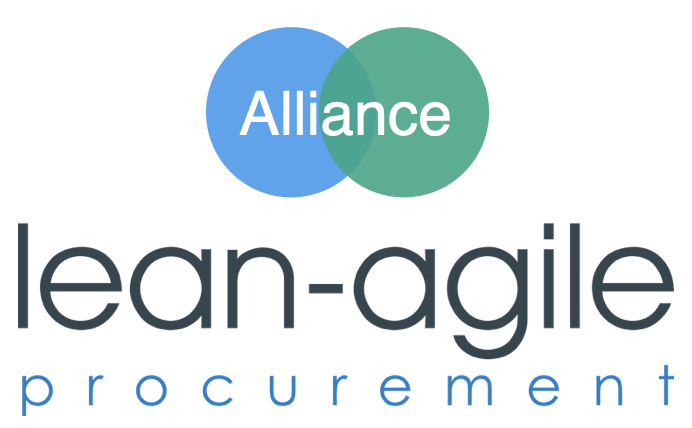
Contract Types
Target-based with Bonus/Penalty
Target-based Contract with Bonus/Penalty
Characteristics
Category
Iron Triangle
In a Target-based Contract with Bonus/Penalty, the scope is defined at a high level by specifying business objectives or targets, providing flexibility in how these are achieved. While the time, cost, and quality are predefined, both parties collaborate within these established constraints to meet the set targets.
Agile Contract?
Yes, a Target-based Contract with Bonus/Penalty can be considered an Agile contract because it offers flexibility in achieving the desired outcomes. New ideas from either party can be integrated during the delivery process without the need for formal change requests.
A Target-based Contract with Bonus/Penalty is similar to a Fixed Scope & Fixed Price Contract, but instead of a fixed scope, it specifies particular targets or outputs. This type of contract includes incentives for early delivery through bonuses and penalties for late delivery. This contract type is suited for relational relationships and focuses on achieving set goals without specifying the exact methods, solutions, services, or products to be used. It allows flexibility in how the targets are met, encouraging innovation and adaptability.
Buyers Perspective
Example
A Target-based Contract with Bonus/Penalty might involve a renewable energy company committing to build five solar farms within two years. The contract stipulates that if the vendor meets or exceeds the targets within the agreed timeframe, they receive a predefined bonus; however, if they fail to do so, a penalty is applied.
Also known as
Performance Incentive Contract, Results-driven Contract with Incentives, Milestone-based Contract with Rewards/Penalties, Achievement-based Compensation Contract
Vendors Perspective
From the vendor's perspective, a Target-based Contract offers the flexibility to choose the best methods and solutions to meet specified business objectives. The vendor gets incentiviced for taking the for delivery, especially if meeting or exceeding the targets within the set time, cost, and quality parameters. This contract type can be advantageous if the vendor is confident in their ability to innovate and deliver results efficiently, which could lead to a high profit. However, it also requires careful management to ensure that the targets are met and to avoid potential financial or reputational risks associated with failing to deliver.
In a Target-based Contract, costs, time, and quality are fixed, with the buyer setting a high-level scope by specifying business objectives or targets. If the if the vendor meets or exceeds the targets within the agreed timeframe, they receive a predefined bonus; however, if they fail to do so, a penalty is applied. The arrangement transfers all delivery risk to the vendor. Payments typically follow a predefined schedule linked to achieving specific targets and milestones. The key benefit for the buyer is the ability to reach a quicker agreement on a high-level scope, allowing for flexibility and adaptability in the implementation.
Optimal if
A Target-based Contract is ideal for projects where clear outputs are desired, but flexibility in achieving them is crucial. It is well-suited for dynamic environments where innovation is important, as it allows vendors the freedom to choose the best methods to meet specific business objectives. The inclusion of a bonus/penalty structure further incentivizes vendors to deliver high-quality results efficiently, rewarding timely achievement and penalizing delays, thus ensuring accountability and alignment of interests between the parties.
Challenges
Defining Clear and Measurable Targets: Accurately setting clear, specific, and measurable targets can be challenging and may lead to disputes if not well-defined.
Incentive Misalignment: The bonus and penalty structure may create perverse incentives, encouraging vendors to prioritize speed over quality or other important aspects.
Risk of Unrealistic Expectations: Buyers may set overly ambitious targets, leading to unrealistic expectations and potential disputes if the vendor fails to meet them.
Dispute Resolution: Disagreements over whether targets have been met, and under what conditions bonuses or penalties apply, can lead to complex and contentious disputes.
Vendor Risk: Vendors bear a significant risk, especially with large penalties, which can strain financial resources and affect business stability.
Impact on Collaboration: The focus on bonuses and penalties can strain the collaborative relationship between buyer and vendor, as each party may become more focused on the contractual terms rather than the project's success.
Variable Costs and Budgeting: The variability of bonuses and penalties can complicate budgeting and financial forecasting for both parties.
External Factors: Uncontrollable external factors, such as regulatory changes or unforeseen events, can impact the ability to meet targets, complicating the fair application of bonuses and penalties.
Advantages
Incentivized Performance: Bonuses motivate vendors to exceed performance targets, leading to potentially better outcomes and faster delivery.
Clear Accountability: The contract establishes clear accountability for meeting specific targets, helping to ensure focus and dedication from the vendor.
Aligned Interests: The use of bonuses and penalties aligns the interests of both parties towards achieving the defined targets efficiently and effectively.
Risk Management: The penalty clauses provide a mechanism for managing risk, encouraging vendors to mitigate issues that could lead to delays or subpar performance.
Cost Control: By defining targets and linking them to financial incentives, buyers can better control costs and avoid unexpected expenses.
Improved Planning and Execution: The structured nature of these contracts often leads to better planning and more rigorous execution by the vendor to avoid penalties.
Enhanced Quality Assurance: The potential for penalties can drive vendors to maintain high-quality standards to avoid penalties associated with poor performance or delays.
Flexibility in Methods: Vendors have the flexibility to determine the best approach to meet the targets, potentially leading to innovative solutions and efficiencies.


